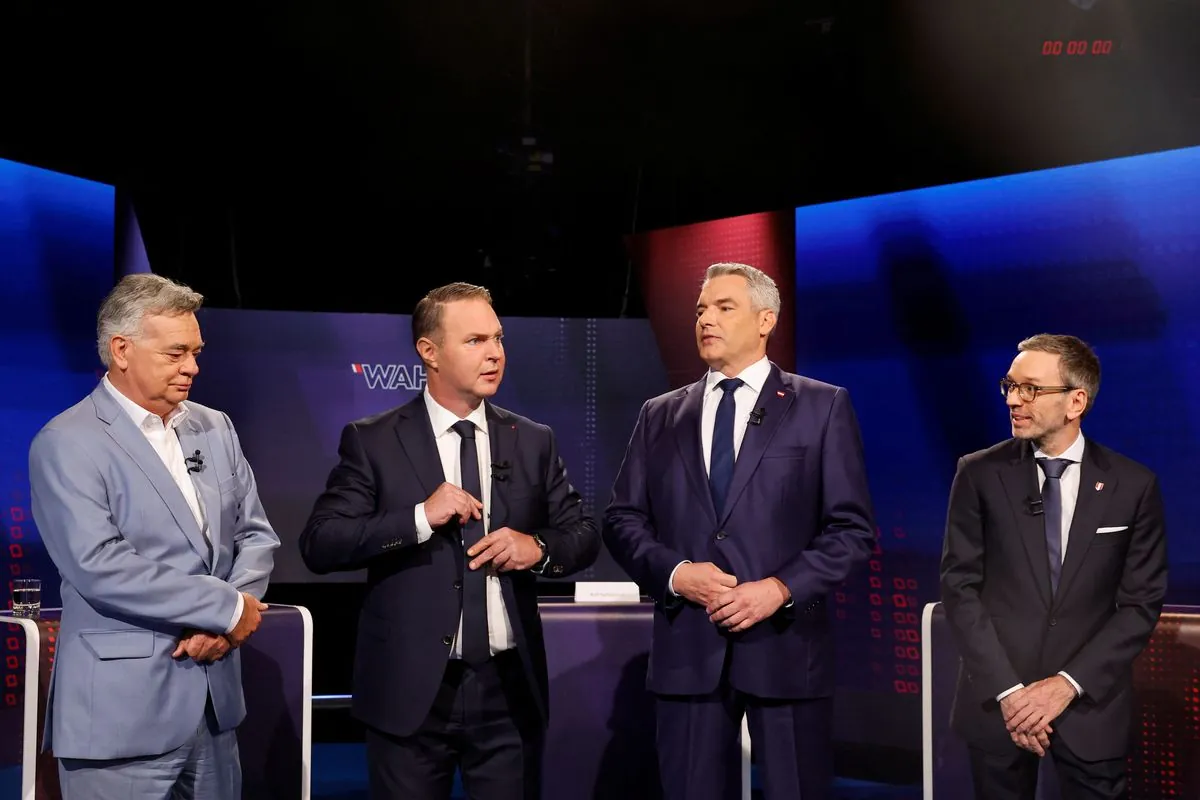On September 29, 2024, Austrians headed to the polls to elect a new parliament, with the far-right Freedom Party of Austria (FPÖ) vying for its first general election victory. This election has drawn significant attention due to its potential to reshape Austria's role within the European Union and its stance on the ongoing conflict in Ukraine.
Austria, a country of approximately 9 million people, has been a member of the European Union since 1995. The nation's political landscape is characterized by a multiparty system with a history of coalition governments. This election is no exception, as polls indicate that no party is likely to secure an absolute majority.
The FPÖ, founded in 1956, has been leading opinion polls for months. However, its advantage over the ruling conservative Austrian People's Party (ÖVP), established in 1945, has narrowed significantly. The campaign has primarily focused on voter concerns regarding the economy and immigration, two issues that have been at the forefront of Austrian politics in recent years.
Herbert Kickl, the 55-year-old leader of the FPÖ, has positioned himself as a defender of Austrian neutrality and a critic of the current establishment. On the other hand, Chancellor Karl Nehammer of the ÖVP has sought to portray himself as a statesman while depicting Kickl as a potential threat to the country's stability.
The outcome of this election could have far-reaching implications for Austria's role in the European Union. The FPÖ has been critical of the EU and has failed to condemn Russia's invasion of Ukraine. The party opposes EU sanctions on Moscow, citing Austria's long-standing neutrality, which has been a cornerstone of the country's foreign policy since 1955.
"The constitution does not require me to ask the first-placed party to form a government, even though that has long been the convention."
President Alexander Van der Bellen, who oversees the formation of governments, has expressed reservations about the FPÖ due to its Eurosceptic stance and its position on the Ukraine conflict. This has led to speculation that he might intervene in the government formation process if the FPÖ emerges victorious.
The election has also reignited debates about Austria's historical legacy and the far-right's place in modern politics. The FPÖ, which was initially led by a former Nazi lawmaker in the 1950s, has faced renewed controversy. A recent video showed party members attending a funeral where a song popular with the Nazi SS was sung, leading to a complaint filed by a Jewish student group in Vienna accusing FPÖ members of breaching anti-Nazi laws.
As Austria grapples with these political developments, it's worth noting that the country has a rich cultural heritage and a strong tradition of social welfare. Known for its Alpine landscape and as a leader in renewable energy, Austria has long been a popular tourist destination and has produced numerous Nobel Prize winners in fields such as physics and economics.
The outcome of this election remains uncertain, but it is clear that Austria stands at a crossroads. The results will not only shape the country's domestic policies but could also influence its relationships within the European Union and its approach to international conflicts, potentially challenging the nation's long-standing tradition of neutrality in global affairs.
